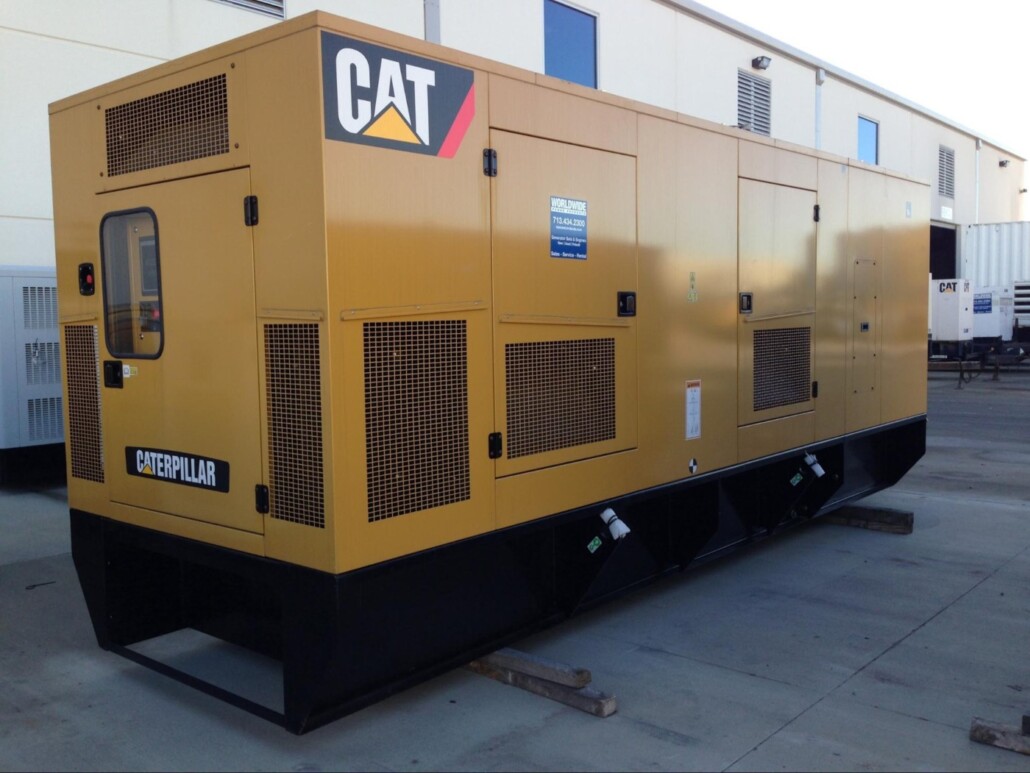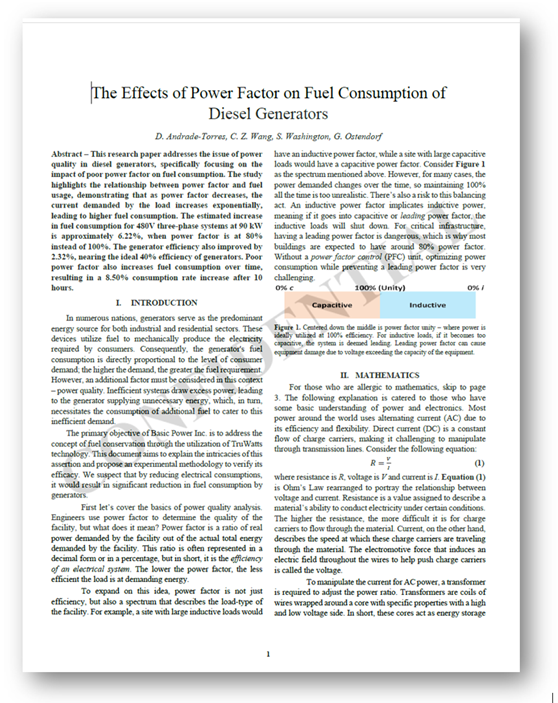
Unlock Real Fuel Savings with Expert Power Quality Engineering
At Basic Power, we specialize in power quality surveys for 480V generator systems and bring a deep technical understanding of how power factor (PF) and harmonic distortion impact fuel efficiency. Our engineering-driven approach delivers measurable, predictable savings, not just estimates, by improving generator performance and extending equipment life.
Why Power Quality Matters
Generators running at poor power factors or under harmonic load stress waste fuel and can experience alternator and winding damage due to heat-related insulation failure.
Our research studies and field measurements prove that even modest improvements in power factor and harmonics can yield substantial fuel savings, especially in low to medium load scenarios.
• Harmonic mitigation reduces internal generator heating and torque ripple, cutting mechanical losses.
• Improved PF leads to more effective kW delivery with less kVA draw, lowering fuel consumption per unit of output.
• Real-time impact grows with operational hours and fuel cost, multiplying the ROI.
Predictable Results You Can Trust
A proprietary, data-driven model based on:
• Manufacturer fuel consumption curves
• Operational load factors and hours
• Real site power quality data from our surveys
This allows us to accurately predict actual fuel savings before you commit to mitigation technologies like our VARIVAR and AHF bundles.
Technical Integrity and Commercial Impact.
Whether you operate standby, prime, or continuous generators, our team gives you more than a report, we deliver a fuel savings roadmap tailored to your system’s real-world performance.
Talk to us today to schedule a power quality assessment and discover how much fuel and money you could be saving for the next ten years.

WHITE PAPER
R&D White Paper on fuel savings
Our research paper addresses the issue of power quality in diesel generators, specifically focusing on the impact of poor power factor on fuel consumption. The study highlights the relationship between power factor and fuel usage, demonstrating that as power factor decreases, the current demanded by the load increases exponentially, leading to higher fuel consumption. The estimated increase in fuel consumption for 480V three-phase systems at 90 kW is approximately 6.22%, when power factor is at 80% instead of 100%. The generator efficiency also improved by 2.32%, nearing the ideal 40% efficiency of generators. Poor power factor also increases fuel consumption over time, resulting in a 8.50% consumption rate increase after 10 hours. These tests were conducted on a new Cummins 100KW Genset. fuel savings for older and less efficient generators are anticipated to be higher.





